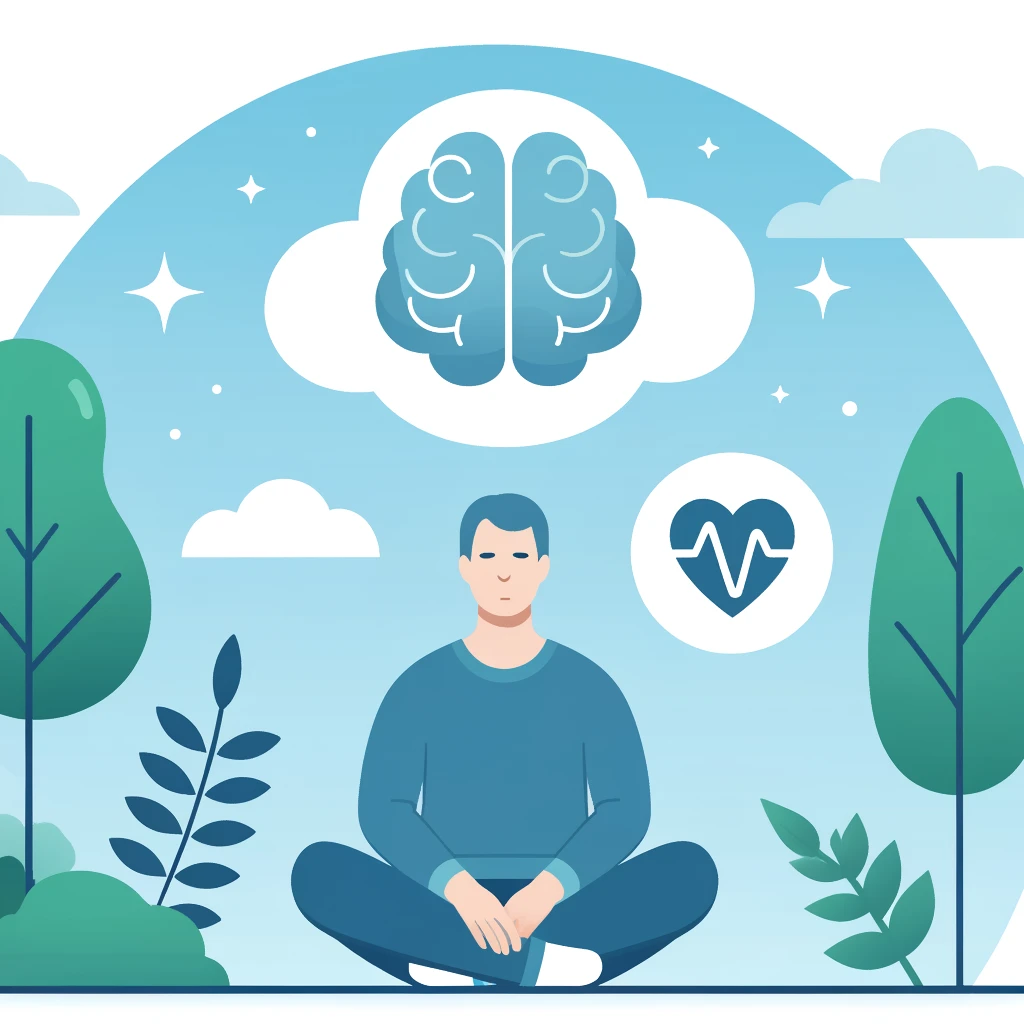Mental Health Awareness Podcasts: Resource for Understanding
Published: 9 Oct 2024
In recent years, mental health awareness has gained significant traction, with more individuals recognising the importance of mental well-being. Mental Health Awareness Podcasts: Resource for Understanding
The Role of Podcasts in Mental Health Awareness

Podcasts serve as an accessible platform for discussing mental health topics that were once stigmatised or overlooked. They allow for open conversations about mental health conditions, coping strategies, and personal experiences, helping to normalise these discussions. By listening to mental health podcasts, individuals can gain a deeper understanding of their own mental health challenges and learn from the experiences of others.
Moreover, podcasts can reach a diverse audience, breaking down geographical barriers and providing information to those who may not have access to traditional mental health resources. This accessibility is particularly important for individuals in remote areas or those who may feel uncomfortable seeking help in person.“The Ultimate Guide to Making Your Podcast SEO-Friendly”
Key Themes in Mental Health Awareness Podcasts
- Personal Stories and Experiences: Many mental health podcasts feature guests who share their personal journeys with mental health challenges. These stories can be incredibly powerful, offering listeners a sense of connection and understanding. Hearing how others have navigated their struggles can inspire hope and resilience.
- Expert Insights: Numerous podcasts invite mental health professionals to discuss various topics, including anxiety, depression, trauma, and coping mechanisms. These experts provide evidence-based information and practical advice, helping listeners to better understand mental health conditions and treatment options.
- Coping Strategies and Tools: Mental health podcasts often focus on providing listeners with actionable strategies for managing their mental health. This can include mindfulness techniques, self-care practices, and tips for building resilience. By equipping listeners with these tools, podcasts empower individuals to take charge of their mental well-being.
- Community and Support: Many podcasts foster a sense of community among listeners. They create a space where individuals can feel heard and understood, reducing feelings of isolation. Some podcasts even encourage listener engagement through social media, allowing for discussions and support networks to form.
- Breaking Stigmas: By openly discussing mental health issues, podcasts play a crucial role in breaking down the stigma surrounding mental illness. They challenge misconceptions and encourage listeners to seek help without fear of judgement .Mental Health Awareness Podcasts: Resource for Understanding
Popular Mental Health Awareness Podcasts

Several podcasts have gained recognition for their impact full content and ability to resonate with listeners. Here are a few notable examples:
Mental Health Awareness Podcasts: Resource for Understanding
- “Celeste the Therapist”: Hosted by Celeste Head lee, this podcast features interviews and empowering messages aimed at helping listeners overcome mental hurdles. Celeste emphasise the importance of perspective and offers practical tips for navigating life’s challenges.
- “The Mental Illness Happy Hour”: Created by comedian Paul Gil-martin, this podcast combines humour with serious discussions about mental illness. Gil-martin interviews guests from various backgrounds, exploring their experiences with mental health in a candid and relatable manner.
- “Therapy Chat”: This podcast focuses on the therapeutic process and features conversations with mental health professionals. It covers a wide range of topics, including trauma, mindfulness, and the intersection of therapy and social justice.
- “Mental Health Foundation Podcast”: This podcast features interviews with individuals involved in mental health advocacy, including those who have experienced mental health challenges. It aims to raise awareness and promote understanding of mental health issues.
- https://www.vogue.com/article/best-mental-health-podcasts
The Impact of Mental Health Awareness Podcasts
The rise of mental health awareness podcasts has had a profound impact on listeners and the broader conversation surrounding mental health. By providing a platform for open dialogue, these podcasts help to demystify mental health issues and encourage individuals to seek help when needed. They also serve as a reminder that mental health is an integral part of overall well-being.
Listeners often report feeling less alone after tuning into these podcasts, as they hear stories that mirror their own experiences. This sense of connection can be incredibly healing, fostering a community of support and understanding.Health Awareness Podcasts: Resource for Understanding and Support
Conclusion
Mental health awareness podcasts are a vital resource for individuals seeking to understand mental health better and find support. By sharing personal stories, expert insights, and practical coping strategies, these podcasts contribute to a more informed and compassionate society. As the stigma surrounding mental health continues to diminish, podcasts will play an increasingly important role in promoting awareness, understanding, and acceptance. Whether you are struggling with mental health challenges or simply looking to learn more, there is a wealth of knowledge and support available through mental health awareness podcasts. Embracing these resources can empower individuals to prioritise their mental well-being and foster a culture of openness and empathy.
Why is mental health awareness important?
Mental health awareness is essential because it helps reduce stigma, encourages individuals to seek help, and promotes understanding of mental health issues. By raising awareness, we can create a supportive environment where people feel comfortable discussing their mental health and accessing resources.
How can I raise awareness about mental health?
You can raise awareness by openly discussing mental health, sharing personal stories, supporting mental health organisation, and educating others on the signs and symptoms of mental health conditions. Hosting events, sharing resources online, and participating in awareness campaigns also contribute to promoting mental health.
Advantages
Dependence on Digital Platforms
Podcasts rely heavily on digital platforms for distribution. Changes in algorithms or policies on platforms like Apple Podcasts or Spotify can impact visibility and accessibility, making it essential for creators to stay informed and adaptable.
Increased Accessibility to Information
Mental health awareness podcasts provide an accessible platform for listeners to learn about various psychological conditions and coping strategies. They can reach a wide audience, breaking down complex topics into digestible conversations. This accessibility can help reduce stigma associated with mental health struggles, as highlighted by experts who note that podcasts can foster greater awareness and understanding
.
disadvanteges
Over-saturation of Content
The podcasting space is becoming increasingly crowded, making it challenging for new mental health podcasts to stand out. With numerous options available, listeners may struggle to find quality content, which can dilute the impact of individual podcasts.
- Quality Control Issues
Not all podcasts are created equal. The lack of regulation in the podcasting space means that some content may be misleading or not based on sound psychological principles. This can lead to the spread of misinformation, which is particularly concerning in the context of mental health.- Limited Audience Engagement
While podcasts can foster community, they may also limit direct engagement compared to other platforms like social media. Listeners may feel less inclined to interact or provide feedback, which can hinder the growth and improvement of the podcast
https://whitepodcast.com
Proudly powered by WordPress
Proudly powered by WordPress
- Be Respectful
- Stay Relevant
- Stay Positive
- True Feedback
- Encourage Discussion
- Avoid Spamming
- No Fake News
- Don't Copy-Paste
- No Personal Attacks
- Be Respectful
- Stay Relevant
- Stay Positive
- True Feedback
- Encourage Discussion
- Avoid Spamming
- No Fake News
- Don't Copy-Paste
- No Personal Attacks






